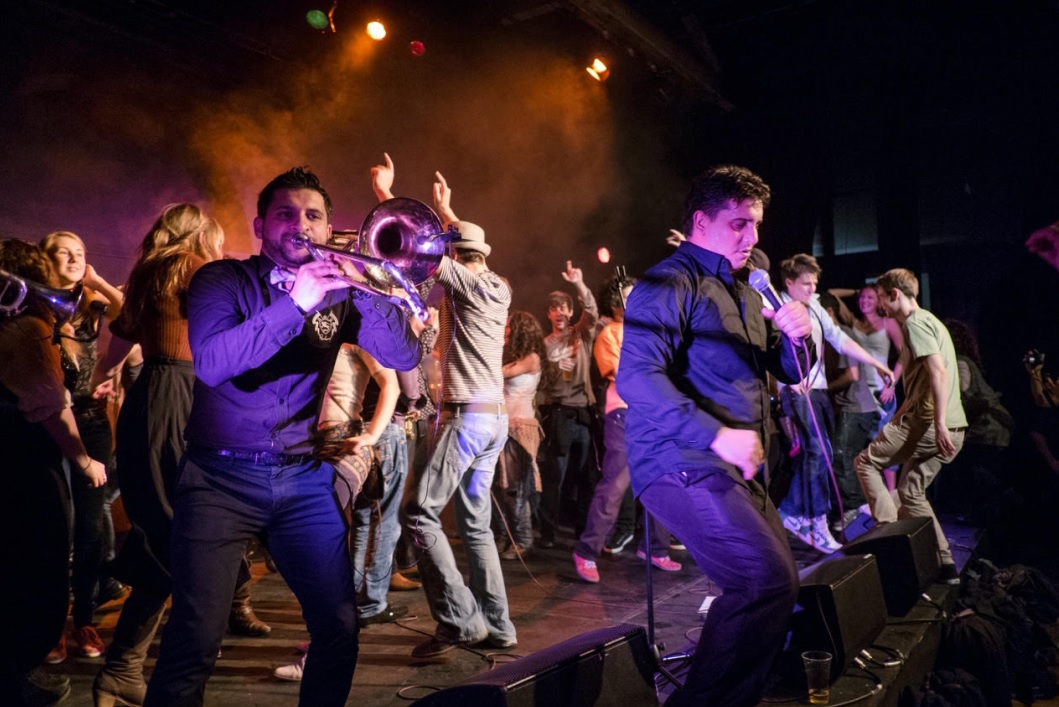 Music venues, museums, galleries, theatres and cinemas across Brighton & Hove have their eyes set on Monday 17th May, when the Government roadmap is scheduled to move to Stage 3, allowing them to reopen to the public for socially distanced events.
Music venues, museums, galleries, theatres and cinemas across Brighton & Hove have their eyes set on Monday 17th May, when the Government roadmap is scheduled to move to Stage 3, allowing them to reopen to the public for socially distanced events.
Creative and cultural business and freelancers have been working tirelessly during lockdown, and this is a significant step on the road to recovery, not just for them but for audiences and the city itself. Culture and creativity are vital to the identity and economy of Brighton & Hove, with the industry severely impacted by the coronavirus pandemic.
A University of Sussex study in 2019 showed that the creative and cultural industries in Greater Brighton generated more than £1.5 billion in annual turnover, employed 16,000 people at over 6,100 companies – a 20% increase over five years. Nationally, there has been a collapse in working hours across the creative industries, 55,000 job losses (a 30% decline) in music, performing and visual arts and a significantly higher than average numbers of people leaving creative occupations.* The recovery of creative and cultural businesses will be fundamental to the recovery of the city.

Helen Jewell, Programme Manager, The Old Market, said:
“Whilst the pandemic has had a disastrous impact in many ways, the cultural organisations in Brighton & Hove have used this as an opportunity to come together and create a strong network of creators and facilitators that have rarely worked together in this way. We hope that a more strategic and united approach to cultural projects going forwards will result in better, more accessible opportunities for everyone in our city.”
Some support has been received from the Government, with the latest round of the Cultural Recovery Fund (CRF2) awarding over £5.8m to 56 organisations across Brighton & Hove – from festivals to grassroots music venues, art galleries and studios to touring theatre companies, museums to event producers and suppliers – which is a recognition of the strength of the creative industries and the role the city has as a cultural hub.
But planning for recovery goes much further. Last year a city-wide collaboration of over 100 organisations and individuals, supported by Brighton & Hove City Council and Arts Council England, contributed to the ABCD Plan for Cultural Recovery, that lays out how the sector might recover from the crisis and find more sustainable and inclusive ways to grow in the future. A diverse and dynamic group of industry professionals are championing the delivery of the plan, united in the belief that creative businesses and workers will be at the forefront of the city’s recovery.
Nicky Crabb, Director, Little Green Pig, said:
“Little Green Pig is delighted to receive CRF2 funding to enable us to get back to delivering our mission of supporting children and young people across Brighton and Hove, as our beloved city comes back to life around us. We are excited to be a part of the Creative Communities Working Group as part of the ABCD Recovery Plan. How brilliant to be a part of the city’s culturally driven economic recovery.”
A core part of the plan is about businesses helping each other, such as streaming platform Be Square.
“We understand that the costs involved in being able to produce a live stream are pretty high especially for those who have been hit hard due to the pandemic. As part of our CRF2 we will be offering venues and artists the opportunity to reach out to their audiences via our Be Square platform for free between April-June.” John Castrillon, CEO, Be Square
This collaborative approach aims to pave the way for artists and creative organisations across the city as we come out of lockdown and start to reconnect the cultural web that makes Brighton & Hove so special.
Check VisitBrighton.com and venue/event websites and social media for the latest information on reopening plans.







